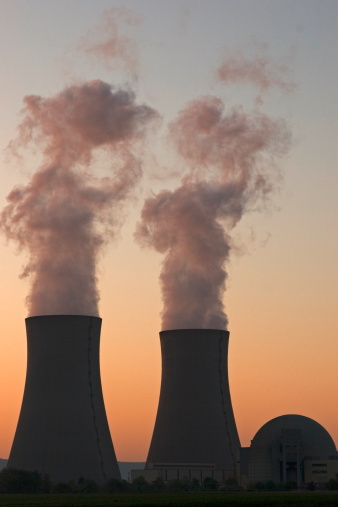
Germany’s influence in Europe is unquestionable, but it appears that some of its neighbors may be adversely affected by recent German decisions; and Greece is not the neighbor in question here. France has been reporting heavy levels of air pollution which authorities in the country are blaming on diesel cars there. But the real culprit may in fact be the renewed German penchant for coal power.
Up until a few years ago, Germany, along with France, was at the forefront of nuclear power use. But after the Fukushima disaster in Japan in 2011, the Germans were quick to begin phasing out nuclear power. In some countries, phasing out nuclear power would be easy, but in 2011, Germany obtained 25% of its power from nuclear sources. This nuclear power generated no carbon dioxide emissions of course, and little in the way of other forms of pollution. But after starting the phase out of nuclear power, Germany still needed to find a source of replacement power.
Renewables like wind and solar sound great in theory, but the sporadic nature of power generation from those sources makes them imperfect substitutes for the consistency of nuclear. In that sense then, battery solutions like that announced by Tesla last week, or the solutions from General Electric, may eventually provide a solution for Germany. But as of now, the grid battery industry is still too nascent to provide serious help to Germany.
Germany aims to generate 80% of its power from renewable sources by 2050 with nuclear being fully phased out by 2021. But given the costs associated with renewables and the challenge of replacing nuclear power efficiently, it is not clear that Germany will succeed in either of these goals.
With renewable energy sources facing generation consistency challenges, that has left the Germans with only a few alternatives for replacing nuclear power: oil, natural gas, and coal. Oil has been so expensive for so long that it never received serious consideration for new power plants. Natural gas on the other hand is cheaper per unit of power generated and it releases about half the level of carbon dioxide that coal does. These characteristics have helped to make natural gas the power plant feedstock of choice in the U.S. especially given the falling per MCF over the last decade.
In Europe though, in part because of concerns about fracking, much of the natural gas comes from Russia. And relying on Russian natural gas as a primary power feedstock can be a dangerous proposition especially given the geopolitical concerns about Russian involvement in Ukraine. Thus, the Germans have increasingly turned to coal as their power generation source of choice, especially U.S. coal. Today coal power plants are responsible for generating nearly half of Germany’s power, and numerous new plants are scheduled to come online in the next few years.
Overall, the increase in coal is likely to create a significant increase in airborne pollution and potentially stoke tension between Germany and its neighbors. But at the same time, if Germany wants to phase out nuclear power, coal is the only realistic option; a fact which some German politicians are starting to admit.
German increased reliance on coal could throw a lifeline to U.S. coal companies and manufacturers like Joy Global (JOY) and Caterpillar (CAT) that rely on coal miners as significant customers. While Germany is the eighth largest coal producer in the world, even with this production it still imports significant amounts of coal from the U.S. If the country continues its plan to phase out nuclear power, it is hard to see how it can avoid increasing its coal use dramatically which, in turn, should help to offset the decreasing coal use from the United States.
This article originally appeared on Oilprice.com.
More from Oilprice.com:
More Must-Reads from TIME
- Inside Elon Musk’s War on Washington
- Why Do More Young Adults Have Cancer?
- Colman Domingo Leads With Radical Love
- 11 New Books to Read in February
- How to Get Better at Doing Things Alone
- Cecily Strong on Goober the Clown
- Column: The Rise of America’s Broligarchy
- Introducing the 2025 Closers
Contact us at letters@time.com